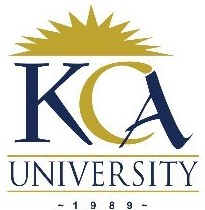 UNIVERSITY EXAMINATIONS: 2013/2014
UNIVERSITY EXAMINATIONS: 2013/2014
ORDINARY EXAMINATION FOR THE BACHELOR OF SCIENCE
IN INFORMATION TECHNOLOGY
BIT 2307 GEOGRAPHICAL INFORMATION SYSTEM
DATE: AUGUST, 2014 TIME: 2 HOURS
INSTRUCTIONS: Answer Question ONE and any other TWO
QUESTION ONE (COMPULSORY 30 MARKS)
a) Distinguish between the component and the functional point of view of GIS.
[5 marks]
b) Use a workflow to describe briefly the logical steps necessary to put a GIS to work
[8 marks]
c) Classify the main GIS software packages into six groups, based on their
functionality and type. [9 marks]
d) Explain why It is important that all data loaded into a map should be in the same
map properties. [4 marks]
e) Describe how a user can control rendering in Quantum GIS. [4 marks]
QUESTION TWO (20 MARKS)
a) Explain the on the fly projection feature in Quantum GIS. [4 marks]
b)
(i) Define georeferencing in GIS. [2 marks]
(ii) Differentiate between the linear and helmert transform as used in quantum
GIS. [4 marks]
c) While a Spheroid approximates the shape of the earth, a Datum defines the
position of the spheroid relative to the centre of the earth.
i) Define these two terms as they are used in GIS. [4 marks]
ii) Why is it important for GIS experts to understand the two terms as they create
maps. [6 marks]
QUESTION THREE (20 MARKS)
a) Representing the earth’s surface in two dimensions causes distortion in the shape,
area, distance, or direction of the data.
(i) State and describe three types of projections and explain what they preserve
from distortion and therefore what types of maps each can best be used for.
[9 marks]
ii) Define the term map projection as used in GIS. [3 marks]
iii) State and Describe briefly one popular application of the Mercator projection
[4 marks]
b) Referring to the Mercator projection in part (a) (iii). Describe its inherent
properties and developable surface. [4marks]
QUESTION FOUR (20 MARKS)
a) The analysis of network data can provide answers to various networking
problems.
i) Using examples define a network as used in GIS. [3 marks]
ii) Describe four network problems that can be solved using GIS network
analysis. [12 marks]
b) State five factors that should be considered when selecting data for any GIS
application. [5 marks]
QUESTION FIVE (20 MARKS)
a) Vector data is better than Raster data. Discuss.
[10 marks]
b) Explain the following GIS terms [ 10 marks]
i) Panning
ii) Zoom to layer extent
iii) Zoom to full extent
iv) (UOD) universe of discourse
v) Zoom to previous extent
